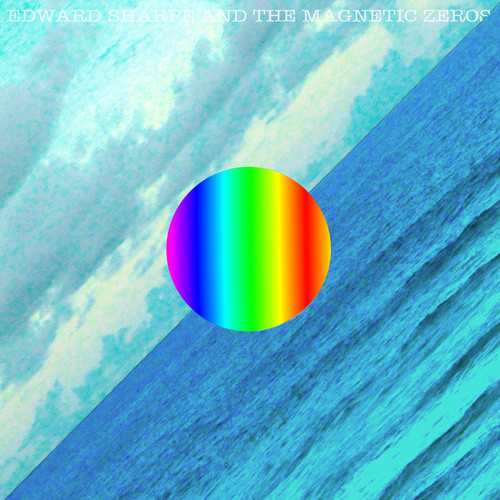At first glance, one might assume Edward Sharpe and the Magnetic Zeros is yet another group of hippies that sing about love, whistle a lot and never shave.
Actually, one would be correct in assuming all of this. But the band has a whole lot to offer the indie rock scene at the moment.
“Here,” which is one of two records the band will release this year, is an album that genre-hops at will, lightly venturing into a new type of sound for the band that, at times, emulates church hymnals and old gospel-folk records.
Edward Sharpe and the Magnetic Zeros is an indie rock band primarily led by Los Angeles native Alexander Ebert. The band is well known for its huge ensemble of musicians, sometimes performing with up to a dozen bodies on stage at once.
The band’s previous claim to fame was “Home,” a track that is recognizable and familiar to anyone who owns a television or radio.
The album begins with “Man on Fire,” a song which serves as a mantra for Ebert. While this track starts off with mumbling and quiet vocals, it soon evolves into something larger than life ““ a howling choir of band members singing “ohs” and “ahs” while dancey and upbeat piano riffs complete the track.
Ebert invites the listener to join his band in celebration and triumph: “Come dance with me / Over heartache and rage / Come set us free.”
The next track, “That’s What’s Up,” might find itself being compared to “Home” by many listeners because of a similar vocal pair-up of Ebert and Jade Castrinos, the other vocalist in the group. While the song is nowhere near as charming as “Home,” it still has merit and serves as another enticing introductory track on “Here.”
“I Don’t Wanna Pray” is a surprisingly catchy sing-along, full of handclaps and gospel-esque chants. If listeners do not appreciate or approve of the banjo, this song will surely change their minds.
While some tracks on “Here,” such as “One Love to Another” and “Mayla,” seem a bit slow and repetitive, the album picks right back up again with “Dear Believer,” an uplifting song that showcases the beauty of Ebert’s voice.
“Child,” which is perhaps the album’s best track right next to “Man on Fire,” sounds like it was born out of the ’60s or ’70s. This tune offers soft and soothing acoustic guitar riffs backed by a steady kick drum, creating a marching effect.
“All Wash Out” is the perfect finale to “Here.” From the opening electric guitar riffs, which actually sound like rain, to Ebert’s signature whistle solo, this song is full of spirituality, catharsis and emotion. By the time the drums and horns come in, the listener will be completely content with what this album has to offer.
While it is somewhat agreed upon by fans and critics that the band’s studio recordings do not quite match up with the energy that the group offers live, “Here” is a solid sophomore album with plenty to offer. While listeners may first be caught off guard by the amount of religious imagery within the album, it does not overpower the music at all. The record does not have anything to offer that compares to “Home,” but that cannot always be expected from a sophomore album.
Email Curcio at ncurcio@media.ucla.edu.
